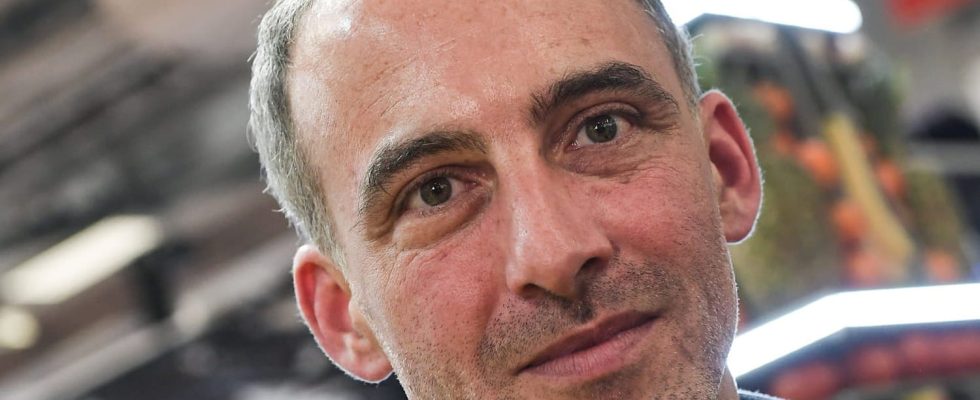Head of the PS-Public Place list for the 2024 European elections, MEP Raphaël Glucksmann, 44, is currently leading the race on the left.
Raphaël Glucksmann, now 44 years old, is a French journalist, essayist and politician. The one who is in a relationship with the journalist Léa Salamé, with whom he had a boy, was also married to Eka Zgouladze, who was notably Deputy Minister of the Interior of Ukraine, and with whom he also had a son, while Raphaël Glucksmann worked as an advisor to Georgian President Mikheil Saakashvili, between 2009 and 2012. Engaged in the Euromaidan movement in Ukraine, which led in 2014 to the dismissal of pro-Russian President Viktor Yanukovych, he is unsurprisingly, Raphaël Glucksmann positioned himself from the start of the conflict against the war in Ukraine in the European Parliament. “It is to prevent the whole of Europe from plunging into war that we must rearm ourselves and arm the Ukrainian resistance, while the prospect of a great American abandonment is becoming clearer. These pseudo-“pacifists” do not work not for peace, but for the defeat of democracies”, said Raphaël Glucksmann on February 20 on X (ex-Twitter). He is also known for his commitment against the persecution of Uyghurs in China.
A PS-Place publique list that could do better than in 2019
The Socialist Party formalized on Saturday February 24 the agreement concluded with the Place publique political party with a view to the European elections next June. And with it, the designation of Raphaël Glucksmann as head of the list. In his communicated, the PS announced that this agreement “comes at a time when Europe must assert itself to face historic challenges in terms of protection and when the rise of the far right threatens its founding values”. Co-founded by MEP Raphaël Glucksmann in 2018, Place publique, which positions itself on the left, declared for its part that it wanted to “act to build a democratic, united and ecological Europe”.
The PS and @public place_ reached an agreement in view of the European elections.
It comes at a time when Europe must assert itself to face historic challenges in terms of protection and when the rise of the extreme right threatens its founding values.
Our CP pic.twitter.com/9paGssjyMs
— Socialist Party (@partisocialiste) February 24, 2024
At the last European elections of 2019, the transpartisan list, already led at the time by Raphaël Glucksmann and which brought together the parties Place publique, Nouvelle Donne, Les Radicaux de gauche, the Union of Democrats and Environmentalists, Cap21 and the Socialist Party, had obtained 6.19% of the votes. A result that the PS-Place publique list could improve during the next elections according to the Odoxa survey published Tuesday by Public Senate and the regional press. Indeed, the list led by Raphaël Gucksmann is currently credited with 11% of voting intentions, two points more than just a month ago. A score which makes it the third list behind that of the National Rally (30%) and that of the presidential camp (19%), and the first on the left, ahead of the Ecologists (8.5%), La France insoumise (6%) or even the communists (1.5%).
If voting intentions in favor of the PS-Place publique list are increasing, Raphaël Glucksmann also recorded, personally, a good breakthrough in the polls. With nine points more (38%), the MEP is currently the fourth favorite personality of left-wing supporters, behind Fabien Roussel (47%), François Ruffin (43%) and Jean-Luc Mélenchon (40%).
What program for the PS-Place publique list?
Although an agreement has been reached between the Socialist Party and Place publique, no joint program has yet been formalized. Last December, however, the Socialist Party presented its project with a view to the European elections. Its title: “Turning Europe from neoliberalism to ecological socialism”. Among the party’s proposals, “a tax package” making it possible to tax polluting companies, the richest and super-profits, with the aim of financing the ecological transition, notably relayed 20 minutes. For his part, Raphaël Glucksmann pleaded with the Worldlast January, for the establishment of “ecological protectionism at European borders” or in favor of the transformation of the European Union into “a real political and budgetary power” which could “raise taxes” and would tax “the highest heritages”.
